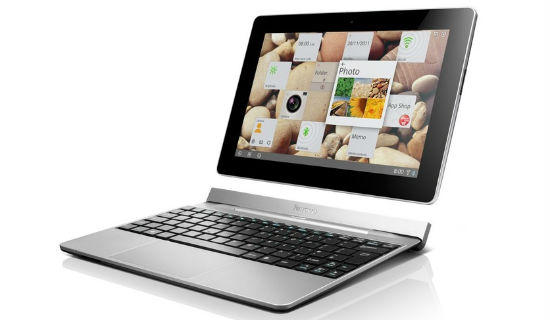Intel aims for longer tablet battery life with new low-power Haswell chips
Intel says it will increase the battery life of tablets and hybrid PCs that use its microprocessors, with new low-power Haswell chips that will start shipping later this year.
The chip maker said Tuesday that its upcoming Core Y series chips will run at 4.5-watts using a metric called SDP (scenario design power), which measures the power used to dissipate heat while running certain apps on mobile and touch devices.
 That’s a lower figure than Intel was aiming for initially, Intel spokesman Dan Snyder said via e-mail. Intel previously said it would release Core Y chips with a 6-watt SDP.
That’s a lower figure than Intel was aiming for initially, Intel spokesman Dan Snyder said via e-mail. Intel previously said it would release Core Y chips with a 6-watt SDP.
Intel’s use of SDP has been criticized, however, since it differs from the widely-used and accepted TDP (Thermal Design Power) metric. Intel counters that TDP may not be applicable on devices such as tablets, because they differ so much in design from laptops. Rivals such as Advanced Micro Devices disagree.
Tablets and hybrid PCs with the 4.5 watt Core chips will offer more than nine hours of Dell xps m1730 notebook battery life on active usage, Snyder said. Intel also announced 6-watt Core Y processors for PCs fitted with fans.
Intel has claimed that the fourth-generation Core chips based on Haswell offer up to 50 percent longer battery life and up to twice the graphics performance than their Ivy Bridge predecessors.
The Core Y chips will ship to device makers in the coming months, Snyder said. However, the company declined to comment on when tablets and hybrids based on the chips would become available. Tablets and hybrids running on Intel’s third-generation Core i3 and i5 chips based on Ivy Bridge are already available. Intel also offers the Atom processor for tablets; the Core processors are faster though more HP 2133 laptop battery power hungry.
The Y-series chips are vital for Intel, which needs to grab a larger share of the tablet market as PC shipments decline. Intel is also trying to bridge the laptop-tablet divide via Haswell, targeting the chips at hybrids with detachable touchscreens and keyboards. The market is dominated today by ARM, whose processors are used in most tablets and smartphones.
The first Core Y processors join a lineup of Haswell processors that include Core U dual-core laptop chips, which draw 11.5 watts to 15 watts of power. Intel in June also started shipping other quad- and dual-core Haswell chips for desktops and laptops. PC makers including Hewlett-Packard, Dell and Acer have announced laptops and hybrids based on the Haswell chips announced in June.

